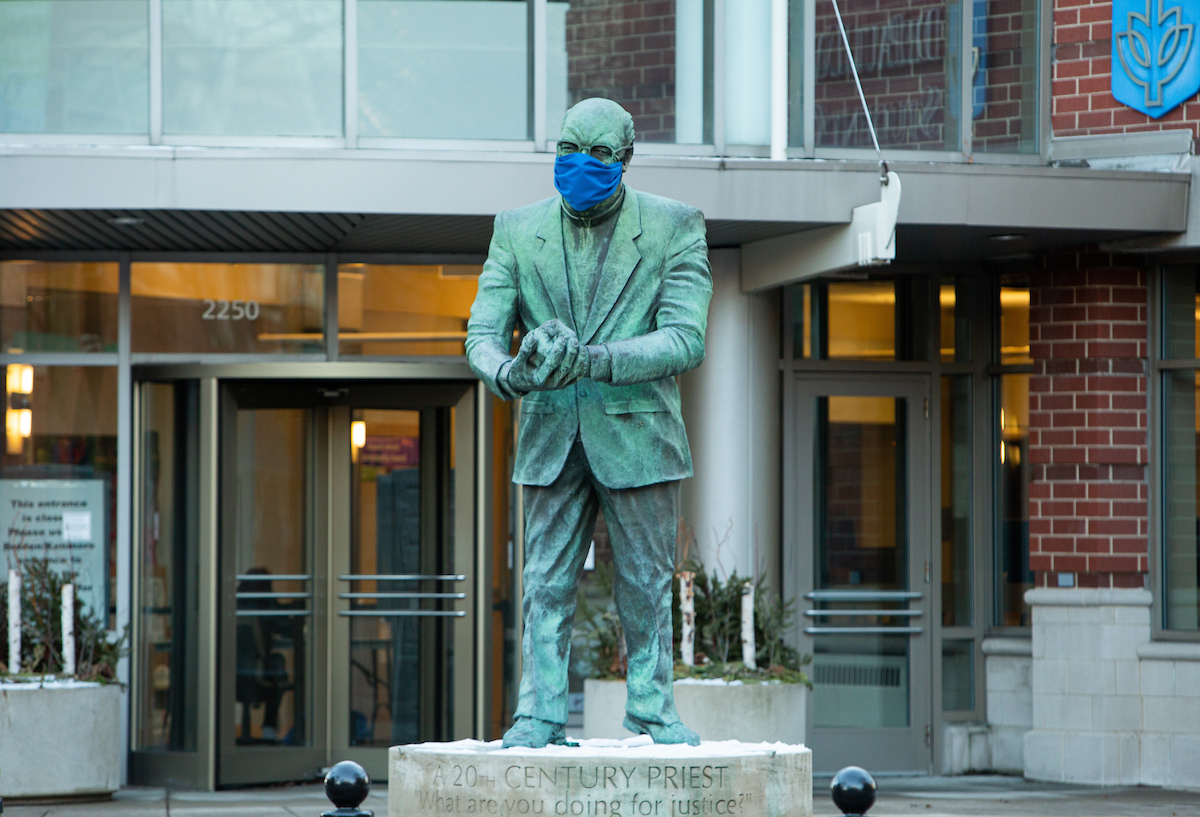 (DePaul University/Randall Spriggs)
(DePaul University/Randall Spriggs)
Since the early days of the COVID-19 pandemic in Chicago, DePaul has relied on the advice of Jonathan Maks, MD, to inform the university's planning and guidance to our community. 
Maks is a practicing internal medicine physician and the medical director for DePaul's student health services offered through AMITA Sage Medical Group at 1150 W. Fullerton Ave., in Lincoln Park. AMITA Health is the largest health system in Illinois, comprising 19 hospitals and more than 230 sites of care. In his role as regional medical officer, he oversees AMITA Health Medical Group in the Chicago Metro area, which includes doctors and nurse practitioners at AMITA St. Joseph Hospital, AMITA St. Mary Elizabeth Medical Center, AMITA Resurrection Medical Center and AMITA St. Francis Hospital.
As the medical advisor to DePaul's COVID-19 response plan, he meets with a DePaul team once or twice a week to discuss all things COVID-19—from the university's mitigation strategies to vaccination education.
In this Q&A, Maks shares his perspective on DePaul's response to the pandemic.
What have been the key steps DePaul took to promote safety during this pandemic?
The university has been incredible at maintaining a safe environment over the past several months. Early on, DePaul took quick action to limit density on campus and minimize risk of COVID-19 exposure to students, faculty and staff. The administration also developed measures to promote safety for the limited groups of people who are working, living and learning on campus.
DePaul has offered most classes online since the pandemic began. In fall 2021, the university plans on welcoming more students back to classrooms and residence halls. From a COVID-19 mitigation perspective, what makes fall 2021 different from any other time in the last year?
I'm cautiously optimistic for fall 2021. DePaul and the greater Chicago area have proven mitigation strategies can and do work. Consistent COVID precautions—hand washing, use of protective masks, appropriate distancing, use of good room air circulation and such— will continue to be cornerstones of success for our classrooms and residence halls. I also am hopeful vaccination programs will be embraced by students, their families, and our faculty and staff.
Will classrooms be safe for teaching and learning?
I can tell you we have no documented case of transmission in the classroom or workplace on-campus. We do have employees who have tested positive and do not know how they acquired the virus. For the most part, they know household contacts or social gatherings were responsible, but there are cases where we cannot prove it was not while at DePaul. Our experiences are similar to those reported in the medical literature. I am confident our classrooms will be safe for teaching and learning as long as we are consistent with our COVID precautions.
What are some health goals as DePaul prepares to welcome students back to campus?
Learnings and recommendations about COVID-19 continue to change and evolve. With that in mind, I'd love for every Blue Demon to work on these three health-related goals:
DePaul faculty, staff and students are eager to get the vaccine. With three vaccines currently available, is one better than the others?
That's a great question, and something my patients ask me every day. All three vaccines that have received emergency use authorization from the Food and Drug Administration appear to be both safe and effective. Only the Pfizer vaccine is approved for ages 16 and above. Moderna and Johnson & Johnson vaccines are indicated for ages 18 and above. All three of the companies are currently studying vaccine safety in younger ages, and we anticipate preliminary data this summer. Millions of each vaccine have been given in the U.S., and many more overseas. Side effects appear to occur at rates similar to the seasonal flu vaccines. So, to answer your question about which vaccine is best – the best COVID vaccine is the one available to you.